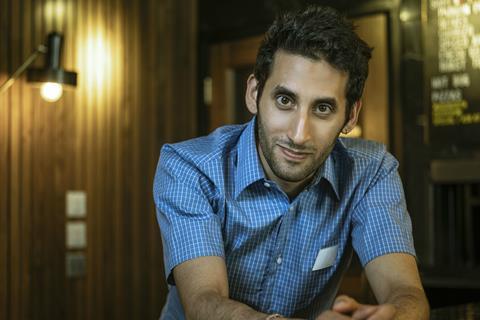
As an actor, screenwriter, director, author, columnist and performer, just how does Amrou Al-Kadhi — who identifies as gender non-binary and uses the pronoun ‘they’ — fit everything in? “I’m a full-time creative. I’m very honest with everyone I’m working with. We set up deadlines between us.”
Click here for the complete list of 2018 Screen Stars of Tomorrow
At the forefront of several current projects is the Film4-assisted Layla, which Amrou is writing and directing, a “contemporary Romeo & Juliet” about two lovers caught between separate sects of the gay community at LGBT Pride in London. Also in the works as a writer/performer is Glamrou with the BFI, centring on Al-Kadhi’s drag queen persona, who has performed to great acclaim (including at Edinburgh Fringe Festival) as part of drag troupe Denim. “It’s basically a musical in which a Muslim drag queen is singing to Allah the whole time.”
TV projects include Beards, a story about a queer relationship, created with Game Of Thrones’ Ellie Kendrick, in conjunction with Playground Entertainment and the BBC.
After parts in films including Steven Spielberg’s Munich, a growing frustration at being offered the same clichéd terrorist roles motivated Al-Kadhi to start writing their own scripts. Their intent was “to use my own experience of being a queer Muslim, and to put it on screen.”
That has come in the shape of four shorts, including Nowness commission Victoria Sin about a female-bodied drag queen, and another short doc, Clash, commissioned by the BFI and BBC. Al-Kadhi’s latest, Anemone, was made with support from BBC Films and Film London, and is about a non-binary Nigerian teenager who becomes a sea anemone. In Al-Kadhi’s words, “It’s queer as fuck!”
Al-Kadhi has written columns and made films about the lack of diversity in the UK creative industries, but how do they find the scene now? “There’s a lot of goodwill… but is there diversity in what people are watching, and want as a ‘good film’? We can change that by having as many diverse filmmakers as possible.”
TV contact: Kitty Laing, United Agents; Film contact: Giles Smart, United Agents
























No comments yet